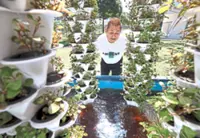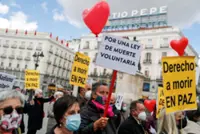In December 2015, a car accident left Dr Billy Tang, an agriculturist and private researcher, with traumatic spinal cord injury.
The accident happened near a university in Kota Damansara, Selangor. In trying to avoid a motorcyclist, who was not wearing a helmet, Tang inadvertently drove up a divider, causing his car to flip over and hit a big tree.





